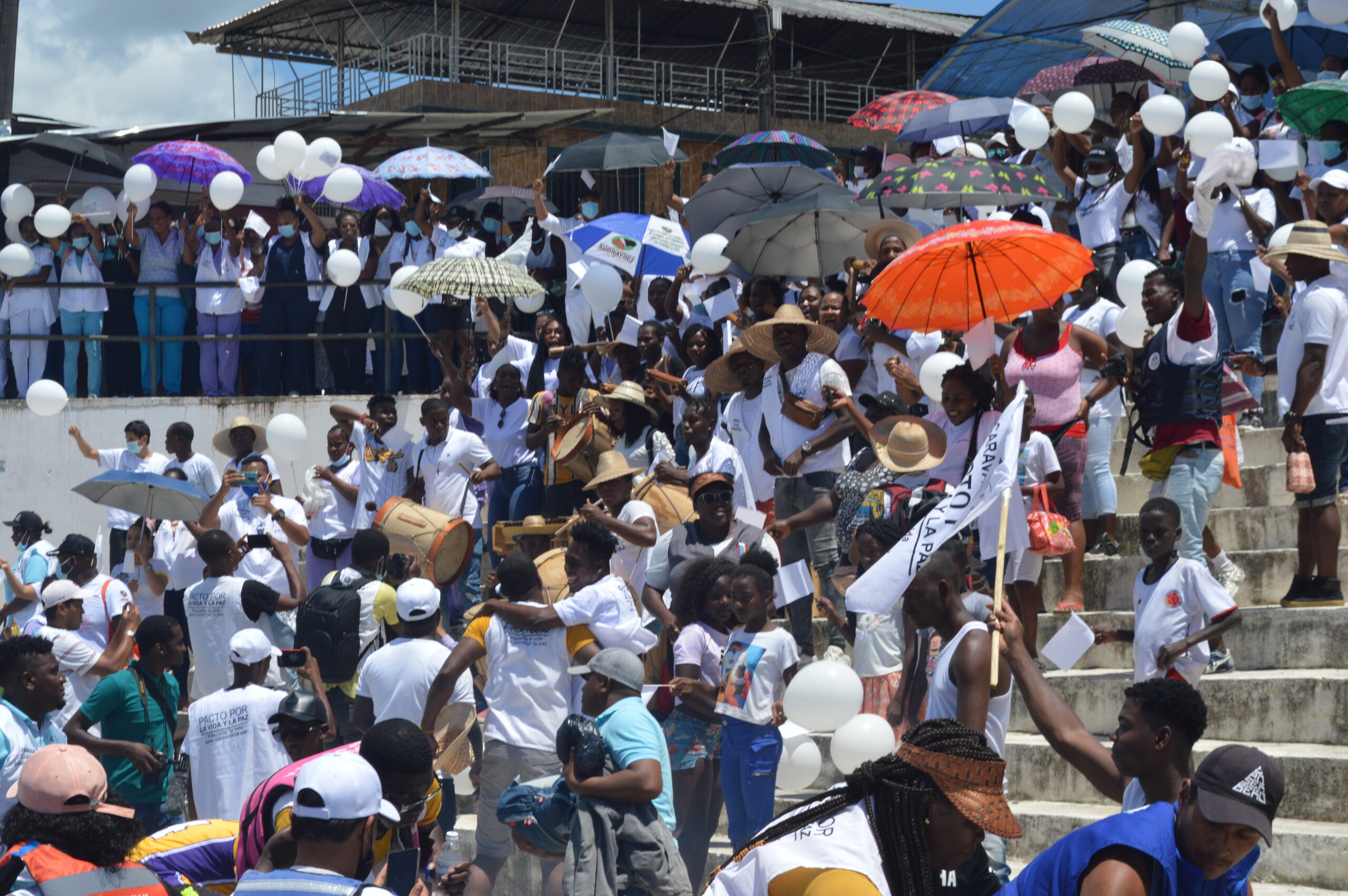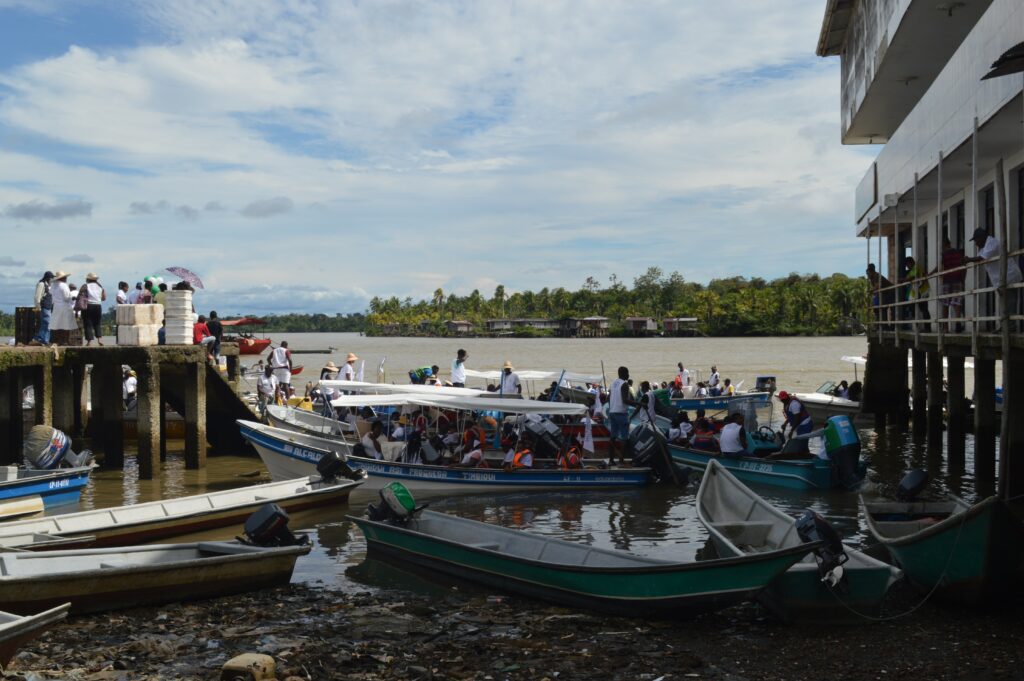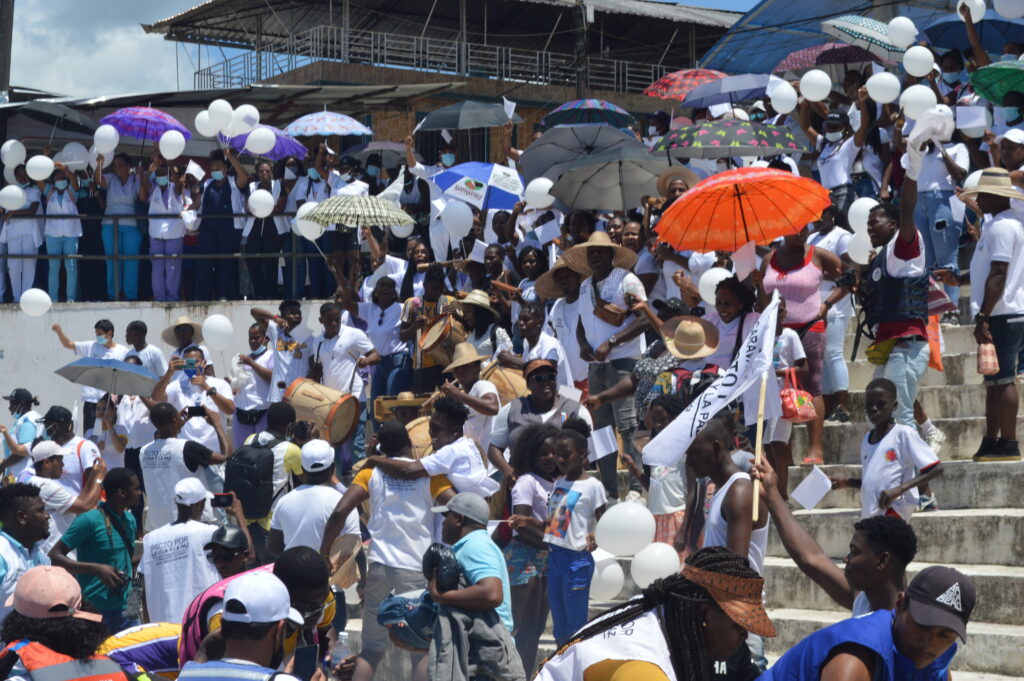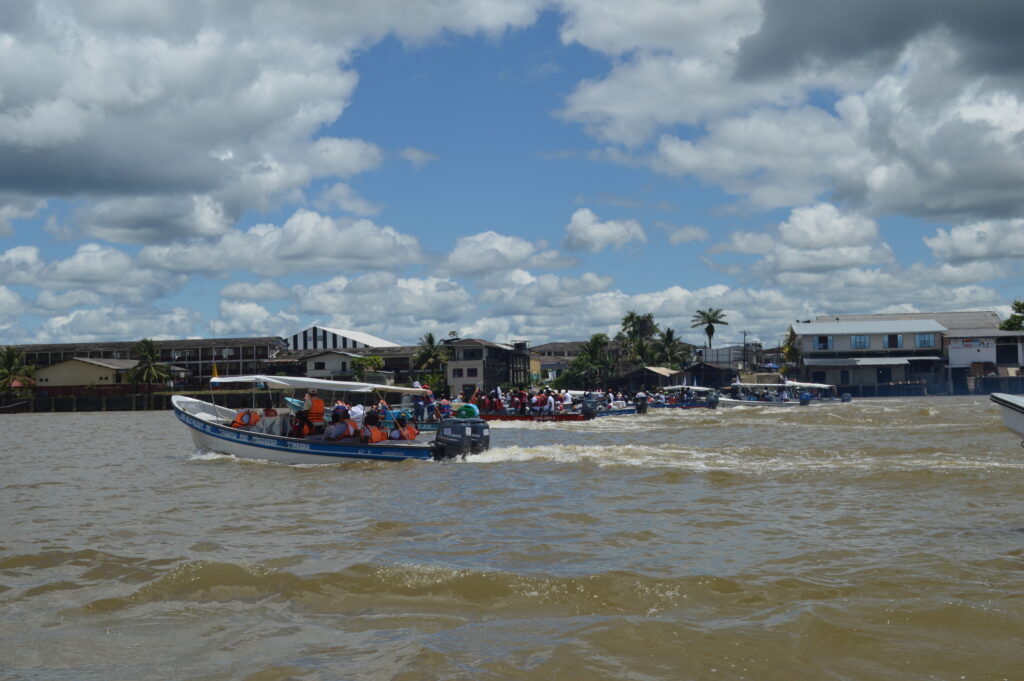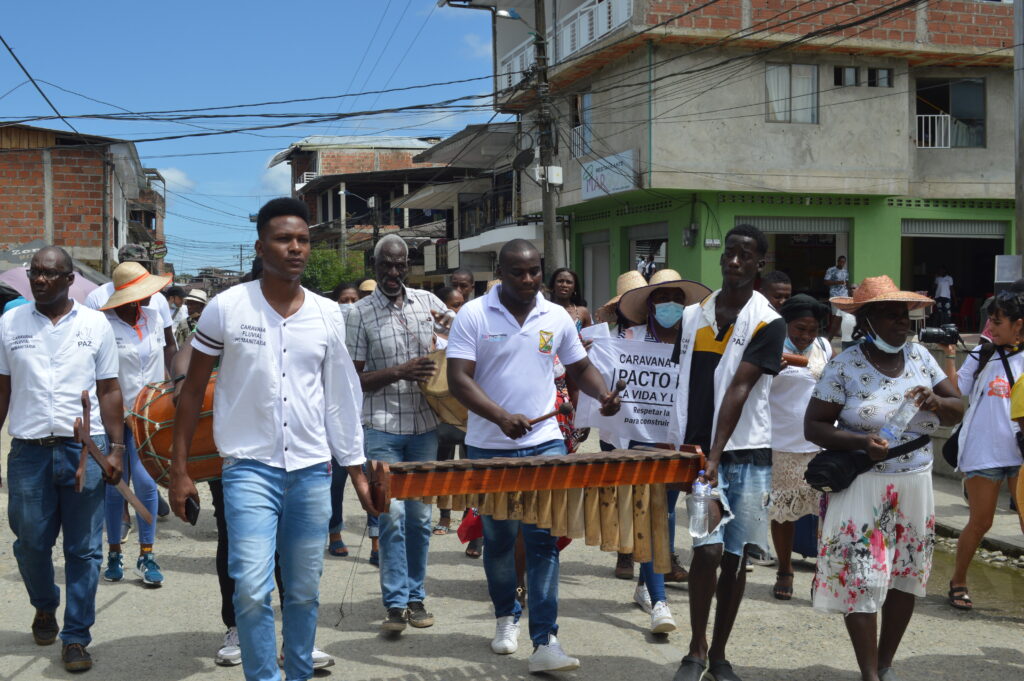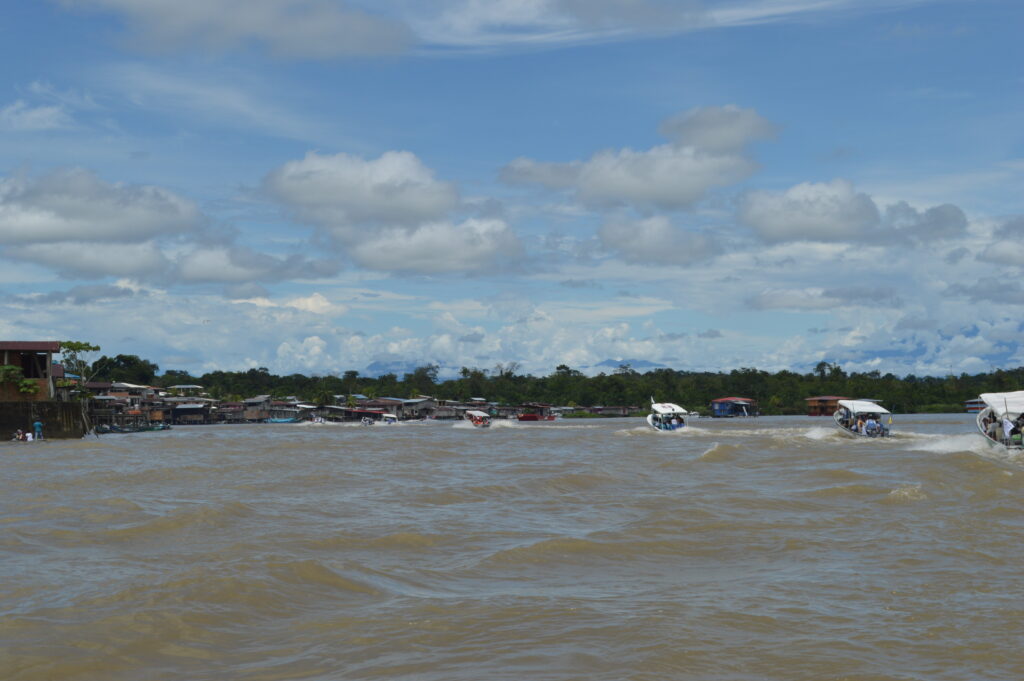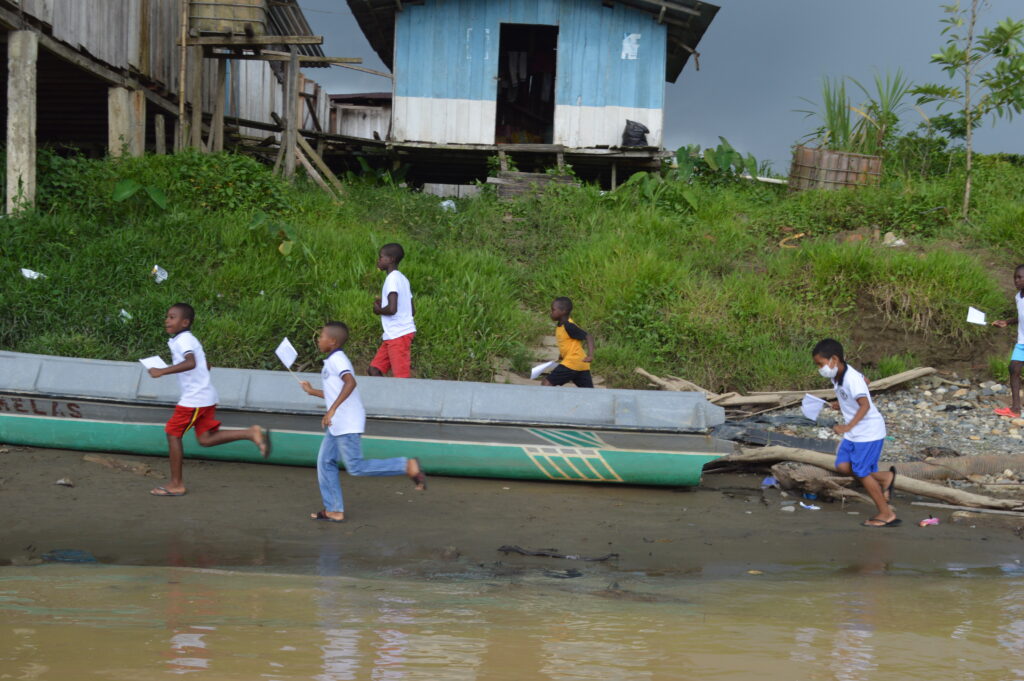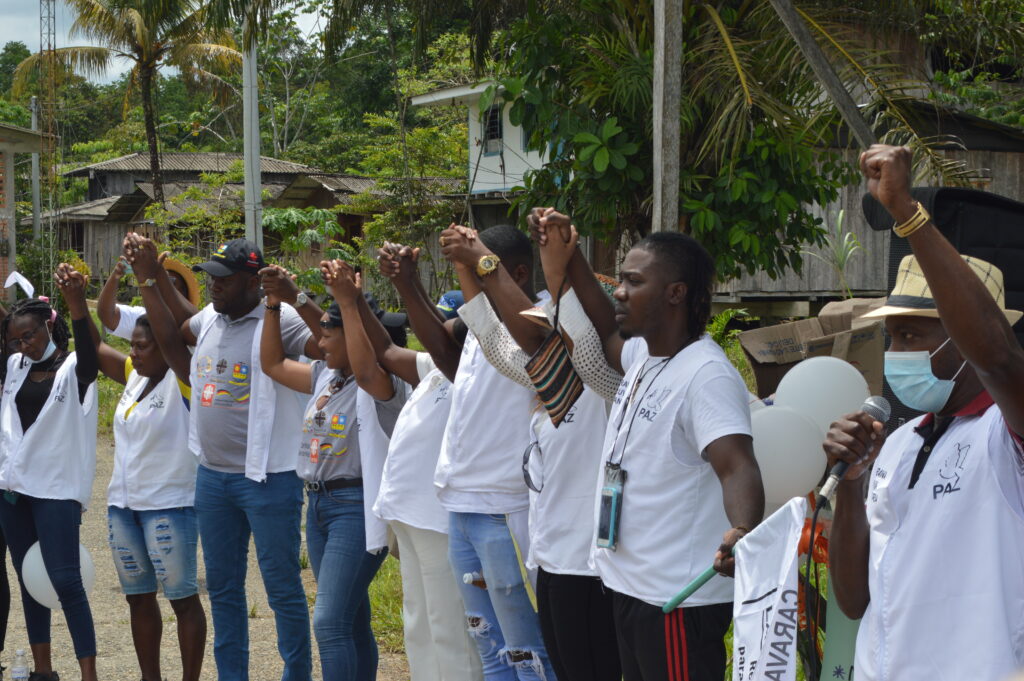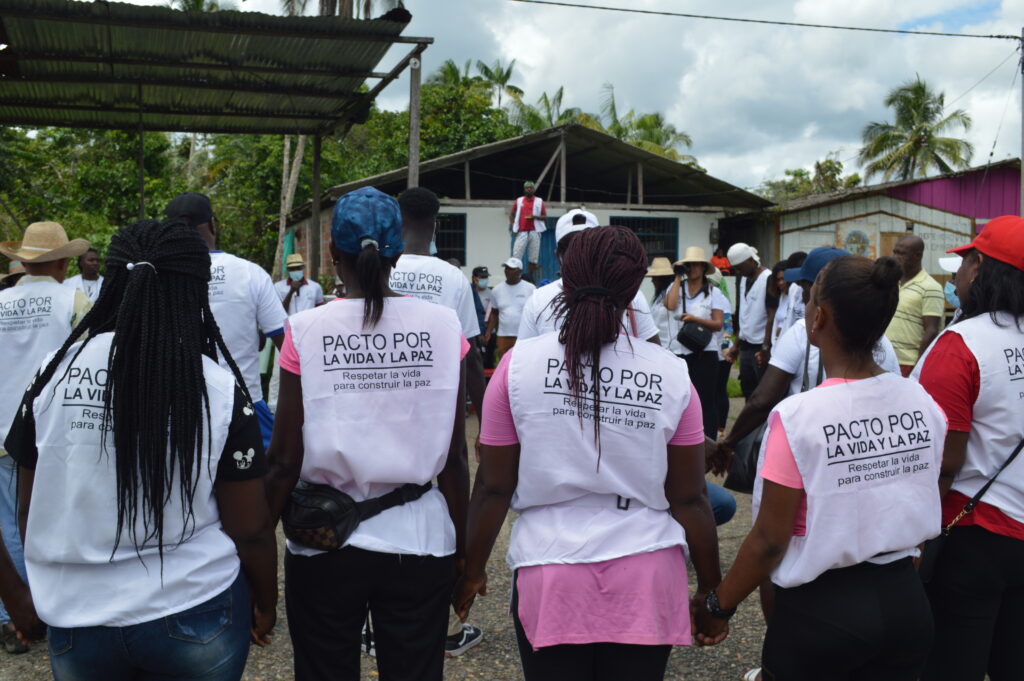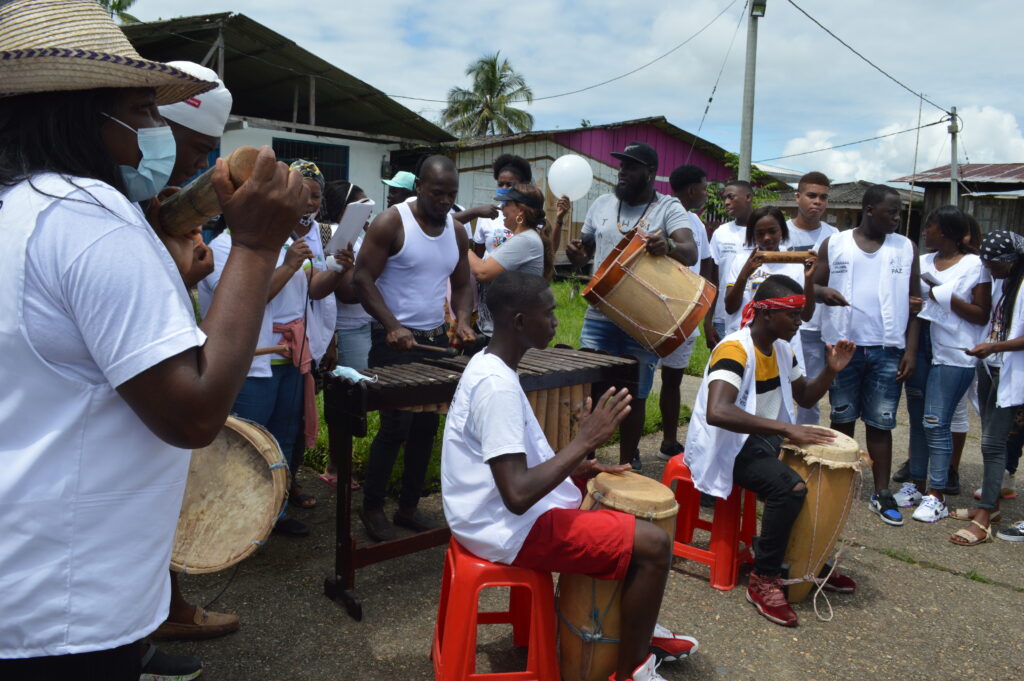Black communities call for an end to the conflict affecting their territories
Black and indigenous lives matter!
As conflict continues to rage throughout the department of Cauca, the region’s black and indigenous social movements continue to mobilise in defence of their territories, and to demand an end to the violence which disproportionately affects them. From 20th-22nd April over 200 people took part in the Humanitarian River Caravan for Life and Peace to Afro-Colombian communities throughout the Pacific jungle riverine communities of Guapi, Timbiquí and López de Micay.
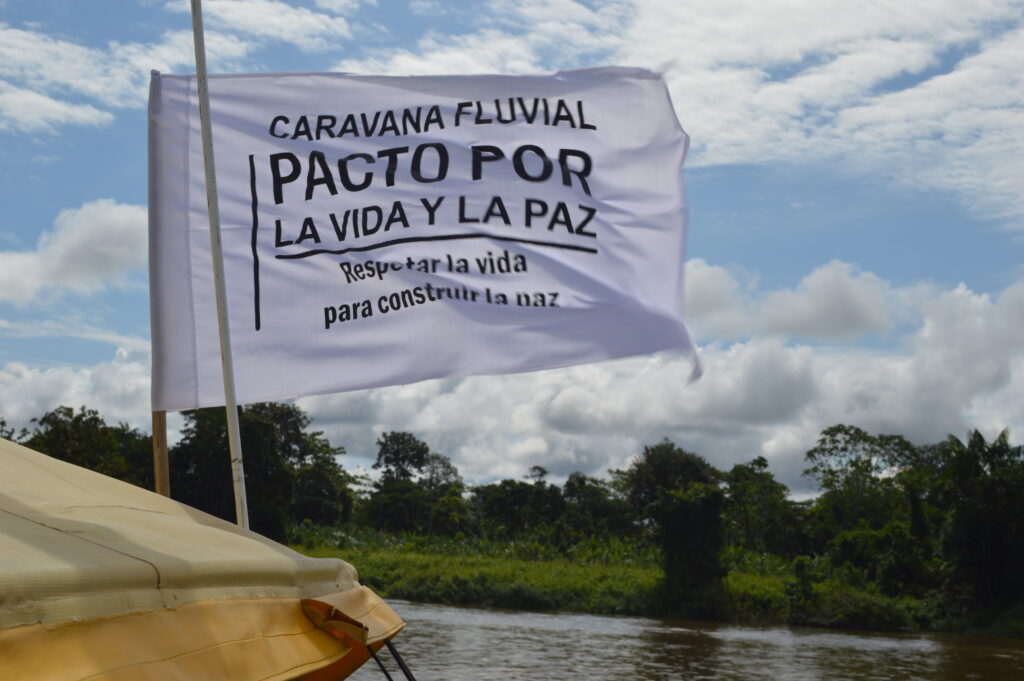
The caravan was organised by CocoCauca1, the Catholic church of Guapi and the ethnic-territorial Conference for Peace (METP). It included delegates of black community councils, indigenous communities, youth groups, artists, human rights organisations, church groups, and LGTBI rights collectives, as well as governmental and multilateral institutions including the UN, the OAS Mission to Support the Peace Process in Colombia, the Colombian human rights ombudsman (Defensoría del Pueblo), the Norwegian Refugee Council, and the Colombian Truth Commission.
The initiative forms part of a series of civil society humanitarian missions which seek to highlight the situation of permanent human rights violations in Colombia’s southwest region, and to take a message of hope to communities. Silvio Solis of CocoCauca explained,
“the humanitarian crisis has destroyed the tranquillity of our people, so it was necessary to speak out for the sacredness of life, we took to the boats in order to accompany our people to make them see that they are not alone”.
The caravan also sought to expand and consolidate the ‘Pact for Life and Peace’, an initiative which emerged from local governments and civil society actors including the Catholic church across southwest Colombia in response to the deepening of the conflict in territories across the region.
As the caravan made its way through this region navigable only by boat through the vast river networks which criss-cross the thick rainforests, activists lamented the virtual absence of Colombian state institutions other than security forces. The delegation stopped in the river communities of Guapi, Limones, Timbiquí, Puerto Saija, Noanamito, Zaragoza, San Antonio de Chaure and López de Micay. These are precisely the areas which under the peace agreement were supposed to have benefited from increased social investment to improve public services and infrastructure, and to generate employment. Instead, according to Solis the communities have seen new armed groups arrive to dispute control of their territories:
“Once the peace agreement was signed there was a brief silence, then conflict broke out again and it was worse than before – now there were many groups fighting as opposed to one or two [before the peace agreement], we don’t know who these groups in our territory are, so it restricts peoples’ movements and forces people to stay at home”.
The various actors involved in fighting in the region include Colombian state forces, paramilitaries, dissident FARC insurgent groups, and the ELN.
The humanitarian crisis faced by communities dispersed throughout the expansive rural areas is characterised by multiple, persistent human rights violations. Berenice Celeyta, coordinator of the human rights organisation Nomadesc, said
“we participated in the caravan because we have seen the processes of territorial plunder which are taking place against communities and the pressure of the armed groups across the whole country. During the pandemic we have seen serious human rights violations which have generated mass displacement. Here in this area, structural racism is one of the factors which drives the permanent violation of communities’ rights.”
CocoCauca has reported serious infractions of International Humanitarian Law, as the various armed actors in the area fail to take even the most minimal of precautions to preserve civilian life. This has led to cases of communities being trapped without being able to escape the fighting, as well as cases of mass displacement. Community leaders and activists have been targeted with threats and in some cases murdered by armed groups seeking to exert their military control; and recruitment of young people, including minors, has been common place.
The impact on the lives of these close-knit ancestral Afro-Colombian communities has been dramatic. This is a people whose relationship with their territory, and especially with the water, is fundamental to their culture and subsistence. In recognition of the vital role that the communities’ culture and spirituality plays in sustaining their resistance, the caravan had a prominent spiritual dimension which included the presence of female traditional healers and Catholic priests. During each community stop, prayers were offered to the Orishas, a symbolic cross was erected, and a sacred matarratón tree was planted. Orlando Pantoja from CocoCauca said,
“the traditional healers give us protection and strength, to make sure we have the strength to keep on sailing…with this we aim to overcome people’s fear, because that fear does a lot of damage”.
According to Pantoja, the reaction of communities to the arrival of the caravan varied according to the situation being faced by inhabitants:
“we saw how much people valued the fact that the caravan arrived to their territories, it is a form of oxygenation, it is a voice of hope, and people are saying ‘please don’t leave us alone, continue accompanying us’…we saw how in some communities the people came to the river banks waving white flags or t-shirts, greeting and applauding, and in others we saw how people couldn’t react or participate because of the situation that they are living”.
Pantoja pointed out the importance of the role of the international community in seeking to force a reaction from the Colombian state in order to transform the situation being lived by the communities:
“We want to say to the international community, please keep on accompanying us, and see why this is important and necessary. You are fundamental because you can have influence upon the Colombian government, the government listens to the international community”.
Celeyta added:
“we call upon the international community to strongly call for the implementation of the peace agreement and the reopening of peace talks with the ELN because the communities urgently need an end to this situation”.
Postscript: On Saturday 24th April CocoCauca released an Urgent Action over the imminent risk to life in the communities around Puerto Saija, Timbiquí one of the areas visited by the caravan. As a result of combats between FARC dissidents and the Marine Infantry, the organisation reports that up to 5,000 residents are faced with possible mass displacement. See Urgent Action below.
Declaration of the Humanitarian River Caravan for Life and Peace
Pacific Coast of Cauca
Faced with the worsening of the social, political and armed conflict, the worsening of the humanitarian crisis and the non-compliance of the Peace Agreement at the national level by the Colombian state, different sectors of civil society, ethnic-territorial, social, ecclesiastical organizations, the academic sector, institutions, international organizations and other expressions of the social movement, have come together to collaborate, convening and promoting the Pact for Life and Peace initiative, in order to strengthen the defence of life, territories and peace in the territories of indigenous peoples, Afro-Colombian and peasant communities.
Within the framework of the Pact for Life and Peace in the Pacific and Southwest, on 10th February the “Cauca Pact for Life, Human Rights, Territory and Peace” was launched in Popayán. This Pact articulates the feelings and thoughts of Cauca society, which is tired of suffering an alien conflict that has only brought suffering, pain and death to our territories.
The current Humanitarian River Caravan for Life and La Paz responds to what is proposed by these pacts, making visible the serious humanitarian situation that exists in the territories of the Pacific region of Cauca as a consequence of the non-implementation of the Peace Agreement; the worsening of the armed conflict, the militarization of territories, bodies and minds, the recruitment and murder of our children and adolescents; the persecution and murder of leaders and human rights defenders; discrimination and violence based on sexual orientation and gender identity; the increase in poverty and social exclusion resulting from a State that does not promote, guarantee, or protect the human and collective rights of our ethnic communities.
We were witnesses to the spiritual force that accompanied the caravan -the rich wisdom of the traditional healers, and we tilled the earth together to sow in Guapi, Limones, Timbiquí, Puerto Saija, Noanamito, Zaragoza, Chaure and López de Micay the sacred plant of matarratón as a symbol of healing in the face of the Covid-19 pandemic that afflicts humanity. Throughout the journey we could verify the deep desire for peace that the communities and traditional authorities have and permanent efforts to bring about an immediate solution to the humanitarian crisis. [abridged]
COVENANT FOR LIFE, COVENANT FOR PEACE, THE PEOPLE ARE PRESENT, THE PEOPLE REQUEST PEACE!
¡PACTO POR LA VIDA, PACTO POR LA PAZ, EL PUEBLO ESTÁ PRESENTE, EL PUEBLO PIDE PAZ!
1Coordination of Community Councils (consejos comunitarios) and Grassroots Organisations of the Black People of the Pacific Coast of Cauca

